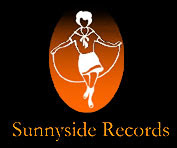Consummate Drummer and Composer Ulysses Owens Jr. Announces the Release of His Eagerly-Awaited Big Band Debut, Soul Conversations, Out May 7th, 2021 on Outside in Music
Outside in Music is thrilled to announce the May 7th, 2021 release of Soul Conversations, the fiery tour-de-force from jazz luminary Ulysses Owens Jr. Soul Conversations marks the renowned drummer’s recording debut with his exciting new 19-piece outfit, the UOJ Big Band, as well as the artist’s first release on Outside in Music. With his unimpeachable drum mastery Owens Jr. is heralded for augmenting the ensembles of such eminent figures as Christian McBride, Wynton Marsalis and Kurt Elling. Owens Jr. has also proven his excellence at steering and magnifying his own ensembles, including his New Century Jazz Quintet. With Soul Conversations, he demonstrates a fresh and ebullient approach in large ensemble jazz. Alongside Owens Jr., Soul Conversations features trumpeters Walter Cano, Benny Benack III, Summer Camargo and Giveton Gelin; trombonists Eric Miller, Gina Benalcazar, Wyatt Forhan, Chris Glassman, Seth Weaver and Michael Dease who also serves as the album’s associate producer; alto players Alexa Tarantino and Erena Terakubo, tenor players Diego Rivera and Daniel Dickinson; and baritone player Andy Gatauskas as well as pianist Takeshi Ohbayashi, bassist Yasushi Nakamura, vocalist Charles Turner III and special guest vibraphonist Stefon Harris.
Recorded live at Dizzy’s Club at Jazz at Lincoln Center in early December 2019, Soul Conversations captures a jubilant performance from the big band, documenting the electricity of a large ensemble that expertly balances excitement with subtlety, and polish with unbridled innovation. The story of the band’s inception began two years prior on the very same stage when Owens Jr. assembled the group to fill out his renowned New Century Jazz Quintet for one night of a week-long run at Dizzy’s. This outfit, at the time billed as the ‘New Century Jazz Big Band’, received tremendous praise, reportedly even giving Wynton Marsalis and The Lincoln Center Orchestra’s performance in the Rose Hall a “worthy run for their money”. Owens Jr. recalls “Everybody kept asking if [the big band] was coming back for the rest of the week.”
Upon the band’s return two years later, audiences were greeted with a working ensemble with a burgeoning repertoire of exciting material and the beginnings of a new musical institution modeled after the iconic bands of yesteryear most notably Art Blakey and the Jazz Messengers. “The band became a cradle for not only young musicians but for young arrangers who wanted to get their work played,” says Owens Jr. The UOJ Big Band is as multigenerational – the members’ ages range from early 20s to their early 40’s – as its multi-gender and multi-ethnic, and the group’s repertoire contains compositions by a multitude of the group’s members.
Soul Conversations opens appropriately with some snappy rim shots before Owens Jr. ignites “Two Bass Hit” with a pithy arrangement that was inspired by both Roy Hargrove’s Big Band rendition from the late-2000’s and Miles Davis’ up-tempo reading of the piece from his 1961 date at San Francisco’s Black Hawk nightclub. The UOJ Big Band then showcases one of its splendid originals – the pneumatic groover, “London Towne,” written by Benack. It originally appeared on the New Century Jazz Quintet’s Time Is Now album. For this version, Steven Feifke provided the simmering arrangement as the composer delivers a satiny, conversational solo followed by a shimmering vibraphone improvisation by Stefon Harris.
The band leader composed three pieces featured on this release, “Beardom X”, “Red Chair” and the title track “Soul Conversations”, penned by Owens Jr. and Ohbayashi. “Beardom X”, is a masterclass in dynamics, with quiet episodic moments and majestic highs. The piece was penned by the leader in tribute to two of his artistic and political guiding lights, visual artist Romare Bearden and civil rights activist Malcolm X. Rivera provided the expansive arrangement heard on this release. The decidedly modern sounding “Soul Conversations” has soul-jazz leanings and a laid-back arrangement provided by trumpeter Jonokuchi. The composition imbues a certain cinematic splendor and features Gelin and Tarantino as soloists.
Aside from innovative original material, the album features impressive arrangements of classic compositions including John Coltrane’s titanic piece “Giant Steps”, Michael Jackson’s “Human Nature”, and Neil Hefti and Bobby Troup’s “Girl Talk”. Rivera’s arrangement heightens the devilish suspense as it allows the saxophone section to ricochet timeless melodies with the trombone and trumpet sections. As the composition builds steam, it becomes a delightful showcase first for Rivera and Dickinson to volley brilliantly inventive solos and then for Gelin to wax a flaring aside. “Girl Talk”, arranged by Nakamura, allows Gelin to unfurl a sensual melodic improvisation, while the other horn sections quietly accompany, sometimes with the soothing harmonies one would expect from a doo-wop group. Owens Jr.’s dramatic rhythmic bombs were inspired by drummer Sonny Payne, who played on Count Basie’s immortal 1966 version.
This formidable introduction of the UOJ Big Band documents the exuberant, soulful sound of the outfit as well as the genuine love and enthusiasm emanating from the leader of the group. Owens Jr. remarks, “I finally feel like I have a record that is emanating a sound that I can confidently create forever.”
Derived From Liner Notes By John Murph


































